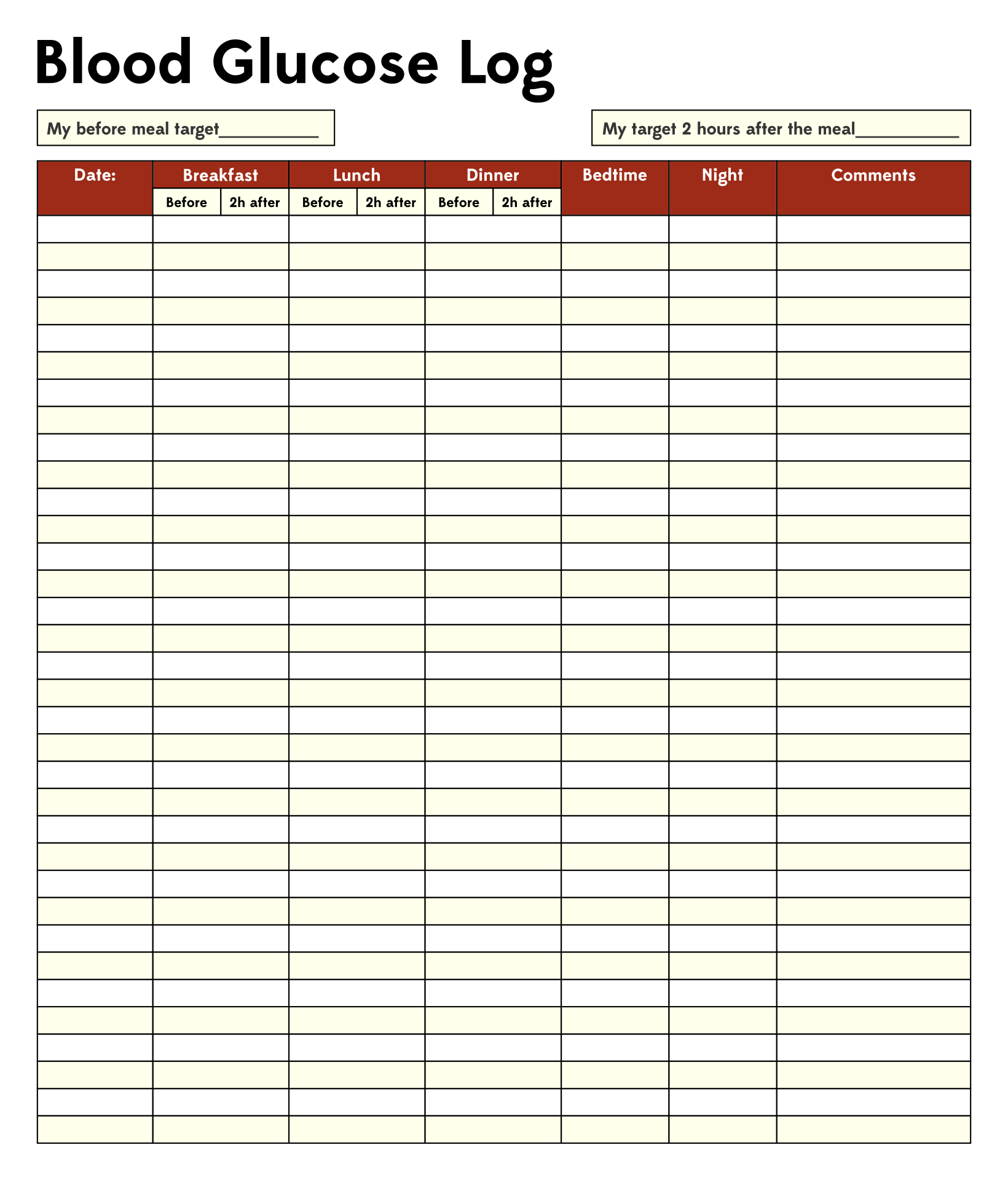Managing diabetes can be a real challenge, but keeping track of your blood sugar levels is an essential part of successful diabetes management. This is where a diabetes log book can come in handy! With a diabetes log book, you can keep a record of your blood glucose levels, meals, medications, and other important information that can help you manage your diabetes more effectively.
Printable Diabetes Log Sheet
 Checking your blood sugar levels regularly is an important part of diabetes management. With this printable diabetes log sheet, you can easily keep track of your blood glucose levels throughout the day. Simply record your blood sugar levels before and after each meal, as well as at bedtime. You can also record any medications you take and any notes about your blood sugar levels that you want to remember.
Checking your blood sugar levels regularly is an important part of diabetes management. With this printable diabetes log sheet, you can easily keep track of your blood glucose levels throughout the day. Simply record your blood sugar levels before and after each meal, as well as at bedtime. You can also record any medications you take and any notes about your blood sugar levels that you want to remember.
Benefits of Using a Diabetes Log Book
Using a diabetes log book can have many benefits for people with diabetes. Here are just a few:
- Improved diabetes management: Keeping track of your blood sugar levels, meals, and medications can help you better manage your diabetes and make more informed decisions about your health.
- Early detection of problems: By keeping a record of your blood sugar levels, you can detect any high or low blood sugar levels early and take action before they become a serious problem.
- Better communication with healthcare providers: By bringing your diabetes log book to your healthcare provider appointments, you can provide them with important information about your diabetes management and work together to make any necessary adjustments to your treatment plan.
- Increased motivation: Seeing your progress over time can be motivating and help you stay on track with your diabetes management.
How to Use a Diabetes Log Book
Using a diabetes log book is easy! Here are a few tips to help you get started:
- Choose a log book that works for you: There are many different types of diabetes log books available, so choose one that fits into your lifestyle and meets your needs.
- Record all relevant information: Make sure to record your blood sugar levels before and after each meal, as well as any medications you take and any notes about your blood sugar levels that you want to remember.
- Be consistent: Try to record your blood sugar levels at the same times every day to get an accurate picture of your diabetes management.
- Bring your log book to healthcare provider appointments: Your healthcare provider can use the information in your log book to help you make any necessary adjustments to your treatment plan.
- Set goals: Setting goals for your blood sugar levels and tracking your progress can be motivating and help you stay on track with your diabetes management.
Conclusion
A diabetes log book can be a valuable tool for people with diabetes. By keeping track of your blood sugar levels, meals, medications, and other important information, you can better manage your diabetes, detect problems early, and work with your healthcare provider to make any necessary adjustments to your treatment plan. So why not give it a try?